Research Interests
Manufacturing; Operations Research
Manufacturing; Operations Research
 PhD
PhD
Assistant Professor, Industrial Engineering
Email: rao@mie.utoronto.ca
Tel: TBD
Office: TBD
Website: www.isabellerao.com
Operations Research; Public Health.
Operations research; optimization; health policy; healthcare operations; machine learning; epidemic control; scarce resources.
Isabelle Rao is an incoming Assistant Professor in the Department of Mechanical & Industrial Engineering at the University of Toronto, starting July 2024. She received her PhD in Management Science and Engineering from Stanford University (2023), MS in Applied Mathematics from École Centrale Paris (2014), and BS in Mathematics from Lycée Louis-le-Grand (2012). She is currently a Postdoctoral Research Fellow at INSEAD in the Technology and Operations Management area.
Isabelle’s research focuses on developing novel mathematical models to inform critical decisions in public health and personalized medicine. Her work is at the intersection of operations research, epidemiology, computer science, and health economics. In particular, she develops interpretable models to provide actionable insights for operational and policy decisions in healthcare. Recently, her work has focused on the areas of COVID-19, opioid abuse, and epidemic control.
Isabelle is looking for graduate students (Master’s and PhD) starting as early as Fall 2024. Prospective students interested in working with her are encouraged to reach out by email, providing their CV, unofficial transcripts, and detailing their research interests.
Operations Research

PhD, Dr.hc, FRSC (UK), FCAE, P.Eng.
Professor, Mechanical Engineering
Director, Centre for Biocomposites and Biomaterials Processing
Ford PERDC Chair in Sustainable Materials
Email: m.sain@utoronto.ca
Tel: 416-946-3191
Office: 33 Willcocks Street
Research Group: Centre for Biocomposites and Biomaterials Process
Materials
Bionanotechnology, Bioderived Carbon-Based Energy Storage and Light-Emitting Devices, Bio-inspired Advanced Materials, Functional and Lightweight Carbon/Biocarbon Materials
Over the past 20 years, Professor Sain’s reputation for research excellence in the global auto sector has awarded him an Endowed Ford Motor Canada Chair in Sustainable Materials. renowned for his pioneering work on the Biocar Initiative in 2009, his work has been featured prominently in popular media., including a feature by Toronto Life magazine ranking Prof. Sain’s contributions as the second most impactful of 25 World Changing Ideas from the Smartest Torontonians. Prof. Sain’s most recent awards include the North American Entrepreneurship Award, the Plastic Innovation Award and the KALEV PUGI Award for innovation and contribution to industry. He is the author of more than 750 peer-reviewed papers with more than 450 peer reviewed journal articles. Prof. Sain has been recognized by King Abdulaziz University for his impactful and highly cited researcher and honoured as a talent professor by both the CNPq (Brazil’s largest government funding organization) and by a consortium of Chinese universities and industry partners. Prof. Sain’s Google citation count was over 2,700 in 2019 alone. He is also a technical advisory member of C4X China-Canada, and a Carbon XPrize finalist for his work on CO2 conversion to lightweight and foamed nanocellluose based lightweight composites. With an extensive patent portfolio, he is world-renowned for his expertise in transforming research ideas into commercialization. He has several start-up companies founded on technologies developed from his work at U of T. Examples include Greencore Composites Inc., Natures Affinity Inc. and GreenNano Technologies Inc. To date he has made more than 50 technology transfers to industries and has help foster new innovations in product designs including improvements to biomedical devices, packaging solutions, flexible electronics, and building and transportation materials. Additionally, he has developed and patented new technologies in collaboration with multiple top tier industry partners such as Ford Motor, Hutchinson Canada and TOTAL North America.
Recently, as part of the global COVID-19 Emergency response, Prof. Sain has applied his research to several projects, including N95 Mask recycling in partnership with Ford Motor, Airbus and APMA, medical enclosures in collaboration with UHN (Toronto General), as well as 3D printed PPE using renewables developed in his own lab.
Prof. Sain’s research activities have been documented by global television networks, magazines, and radio interviews. He is the co-author of the world’s first book on cellulose nanocomposites and has co-edited eight books and book series ranging from enzyme derived biological materials to advanced nanobiomaterials. He is involved in many global strategic research policy developments, standardizations, and research-funding strategic councils in an advisory role. He is a highly acclaimed engineering consultant in materials engineering, and works with close to 100 companies worldwide. Prof. Sain is a leader in creating non-profit organizations that are highly meaningful to our society. He is the founding member of the Canadian Natural Composites Council, the Ontario BioAuto Council, and the Ontario-Jianshu Nano-Innovation Centre in Suzhou, China among others. He has championed the global WPC industry by actively pursuing his global vision for this important and emerging green industry, and has helped grow this industry to an over 5-billion-dollar market.
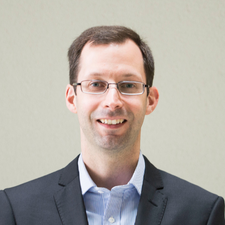
PhD
Associate Professor, Industrial Engineering
Email: ssanner@mie.utoronto.ca
Tel: 416-978-4871
Office: BA8104
Research Group: Data-Driven Decision Making Lab (D3M)
Information Engineering
Applied Machine Learning
Machine Learning and Large-scale Data Analysis, Artificial Intelligence (AI), Information Retrieval, Social Media, Recommender Systems, Sequential Decision Optimization, Operations Research, Smart Cities Applications.
Scott Sanner is an Associate Professor in Industrial Engineering, Cross-appointed in Computer Science, and a faculty affiliate of the Vector Institute. He also held a Dean’s Spark Professorship in the Faculty of Applied Science and Engineering (2018-2021). Previously Scott was an Assistant Professor at Oregon State University and before that he was a Principal Researcher at National ICT Australia (NICTA) and Adjunct Faculty at the Australian National University. Scott earned a PhD in Computer Science from the University of Toronto (2008), an MS in Computer Science from Stanford University (2002), and a double BS in Computer Science and Electrical and Computer Engineering from Carnegie Mellon University (1999).
Scott’s research spans a broad range of topics from the data-driven fields of Machine Learning and Information Retrieval to the decision-driven fields of Artificial Intelligence and Operations Research. Scott has applied the analytic and algorithmic tools from these fields to diverse application areas such as conversational recommender systems, adaptive user interfaces, and Smart Cities applications including predictive health analytics, transport optimization, power systems security, and residential HVAC control.
Scott has served as Program Co-chair for the 26th International Conference on Automated Planning and Scheduling (ICAPS) and is currently an Associate Editor for the Artificial Intelligence Journal (AIJ), the Journal of Artificial Intelligence Research (JAIR), and the Machine Learning Journal (MLJ). Scott was a co-recipient of paper awards from the AI Journal (2014), Transport Research Board (2016), and CPAIOR (2018) and a recipient of a Google Faculty Research Award (2020).
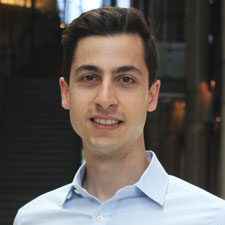
PhD
Assistant Professor, Industrial Engineering
Director, Centre for Healthcare Engineering (CHE)
Email: sarhangian@mie.utoronto.ca
Tel: 416-978-4020
Office: BA8108
Research Group: Applied Stochastic and Statistical Modelling Lab (SSL), Centre for Research in Healthcare Engineering (CHE)
Operations Research
Data-driven stochastic modelling and control; queueing theory; service and healthcare operations.
Vahid Sarhangian is an Assistant Professor in the Department of Mechanical and Industrial Engineering (MIE) and Director of the Centre for Research in Healthcare Engineering (CHE) at the University of Toronto. He holds a PhD in Operations Management and Statistics from the Rotman School of Management, University of Toronto (2015). Before joining MIE, he was a Postdoctoral Research Scholar at the division of Decision, Risk, and Operations at Columbia Business School (2015-2017). Professor Sarhangian’s primary research interests are in data-driven modelling and control of stochastic processing networks that arise in healthcare and service delivery systems. His work has appeared in journals such as Operations Research, Manufacturing & Service Operations Management, Operations Research Letters, and Probability in the Engineering and Informational Sciences.
Professor, Mechanical Engineering
Email: shu@mie.utoronto.ca
Tel: 416-946-3028
Office: MC223
Research Group: Design Effectiveness Laboratory
Mechanics & Design
Human Factors
Creativity in conceptual design; Systematic identification and application of biological analogies in biomimetic (biologically inspired) design; Identifying and overcoming obstacles to personal environmentally significant behavior.
Professor Shu obtained graduate degrees in Mechanical Engineering from MIT in the fields of human-computer interaction in computer-aided design (SM) and design for remanufacture as an approach to environmentally responsible product design (PhD). Professor Shu’s current research focus is designing products that enable environmentally conscious (also known as pro-environmental or sustainable) behavior in consumers.
Professor Shu is active in the American Society of Mechanical Engineers (ASME), serving as the DTM (Design Theory and Methodology) Committee Chair in 2009, DTM Conference Chair in 2008, and DTM Program Chair in 2007. Professor Shu is a fellow of the CIRP (International Academy for Production Engineering Research), and was awarded the CIRP F.W. Taylor Medal Award in 2004. Professor Shu also served on the Advisory Board of the Design Society from 2003-2009 and is on the advisory board/program committee for several international design conferences and editorial board for several journals. From 2018-2023 Professor Shu was the Wallace G. Chalmers Chair of Engineering Design at the University of Toronto.
Professor Shu has spent research stays at AlliedSignal Aerospace Canada Inc., in Etobicoke, Ontario; Eastman Kodak Company, Rochester, New York; Naval Ocean Systems Center, San Diego, California; Naval Training Systems Center, Orlando, Florida; and the Technical University of Denmark.
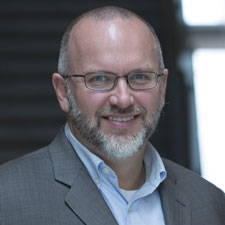
PhD, P.Eng., FCSME
Professor, Mechanical Engineering
U of T Distinguished Professor of Mechanobiology
Scientific Director, Translational Biology and Engineering Program (TBEP), Ted Rogers Centre for Heart Research
Email: simmons@mie.utoronto.ca
Tel: 416-946-0548
Office: 661 University, 14th floor
Research Group: Simmons Lab for Cellular Mechanobiology
Mechanics & Design
Materials
Cellular mechanobiology; cell, tissue and biomaterial micromechanics; design and application of microdevices that mimic complex physiological environments.
Craig Simmons is the University of Toronto Distinguished Professor of Mechanobiology in the Department of Mechanical and Industrial Engineering and the Institute of Biomedical Engineering. He also serves as the Scientific Director of the University of Toronto Translational Biology and Engineering Program in the Ted Rogers Centre for Heart Research.
Craig received his B.Sc. (Eng.) from the University of Guelph (1991), S.M. from the Massachusetts Institute of Technology (1994), and Ph.D. from the University of Toronto (2000). He then completed an NSERC Postdoctoral Fellowship at the University of Michigan (2000-2002) and an American Heart Association Postdoctoral Fellowship at the University of Pennsylvania (2002-2004) before returning to the University of Toronto faculty in 2005.
Craig leads a talented group of researchers and students to discover new treatments for heart valve, heart muscle, and blood vessel diseases, including strategies to regenerate cardiovascular tissues using stem cells and biomaterials. His group also creates novel microfluidic platforms to model vascularized tissues and organs for improved drug testing.
Craig is a Fellow of the American Institute for Medical Biomedical Engineering, the Engineering Institute of Canada, and the Canadian Society for Mechanical Engineering and serves on the editorial boards of ACS Biomaterials Science & Engineering and Cardiovascular Engineering & Technology. He is the recipient of numerous research awards, including the Canada Research Chair in Mechanobiology, the Ontario Early Researcher Award, the McCharles Prize and McLean Award from the University of Toronto, the CP Has Heart Cardiovascular Award from the Heart and Stroke Foundation of Canada, and the Professional Engineers of Ontario Research & Development Engineering Medal. He has also been recognized for exceptional teaching by the Faculty of Applied Science and Engineering with the 2009 Early Career Teaching Award, the 2015 Department of Mechanical and Industrial Engineering Teaching Award, and the 2016 Faculty Teaching Award, and with the 2017 Northrop Frye Award awarded by the University of Toronto for excellence in linking teaching and research.
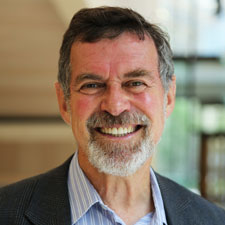
PhD, P.Eng., FCSME
Professor Emeritus, Mechanical Engineering
Director, MAGNA/SCFI M.Eng. program
Email: sinclair@mie.utoronto.ca
Mechanics & Design
Non-destructive material characterization by means of ultrasound with applications to nuclear power plants, aerospace, oil/gas pipelines, protective coatings, welds, material interfaces; ultrasonic phased arrays; signal processing and image enhancement.
Tony Sinclair is a professor in the Department of Mechanical & Industrial Engineering at the University of Toronto. His research specialty is Ultrasonic Nondestructive Evaluation (NDE), with a focus on image enhancement via signal processing, phased arrays, precise measurement of defect size, ultrasonic transducer design, and characterization of material interfaces. His work involves a combination of experimental and numerical modelling techniques, reported in over 200 journal and conference publications, and technical reports. Sponsors of current and past projects have included Ontario Hydro/OPG, NSERC, Pratt & Whitney Canada, NRC Institute for Aerospace Research, Rockwell International, Sigmabond Technologies, Cercast Aluminum, Tower Automotive, Atomic Energy of Canada, DRDC, MITACS, Hatch, Alcan International, ANDEC Manufacturing, Olympus NDT Canada, Advanced Measurement and Analysis Group, Eclipse Scientific, and Groupe Mequaltech.
Tony Sinclair was Chair of the Department of Mechanical & Industrial Engineering at the University of Toronto, 2004-2009. He is a past winner of the Faculty Teaching Award for the Faculty of Applied Science & Engineering at U of T. He is on the editorial board of NDT&E International, and has supervised approximately 60 graduate students, postdoctoral fellows, and research associates, plus 90 undergraduate thesis students.
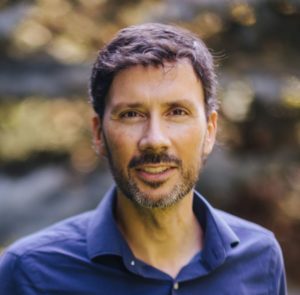
PhD, PEng, FCSME, FASME, FEIC, FCAE, FAAAS, FRSC
Professor, Mechanical Engineering
Canada Research Chair
Academic Director, Climate Positive Energy
Email: dave.sinton@utoronto.ca
Tel: 416-978-1623
Office: MC226
Research Group: Sinton Lab – Fluidics & Energy
Thermofluids
Materials
Energy; fluids; carbon capture and conversion; electrocatalysis; microfluidics; CO2
David Sinton is a Professor in the Department of Mechanical & Industrial Engineering at the University of Toronto, and the Canada Research Chair in Energy and Fluids. He is the Academic Director of the Climate Positive Energy Initiative, and Director of the CANSTOREnergy NFRF-T research program. Prior to joining the University of Toronto, Dr. Sinton was an Associate Professor and Canada Research Chair at the University of Victoria, and a Visiting Associate Professor at Cornell University. He received a BASc from the University of Toronto, MEng from McGill University and his PhD from the University of Toronto. The Sinton group develops fluid systems for applications in energy. The group is application-driven and is currently developing fluid systems for CO2 capture and conversion and to develop energy efficient industrial working fluids. He is a co-founder of CERT Systems Inc —converting CO2 into products— and of Interface Fluidics Ltd —performing industrial fluid testing. Dr. Sinton was selected to be an NSERC E.W.R. Steacie Memorial Fellow in 2016. He is also a Fellow of the Canadian Society for Mechanical Engineering, American Society of Mechanical Engineers, Engineering Institute of Canada, American Association for the Advancement of Science, Canadian Academy of Engineering, and Royal Society of Canada.
© 2024 Faculty of Applied Science & Engineering